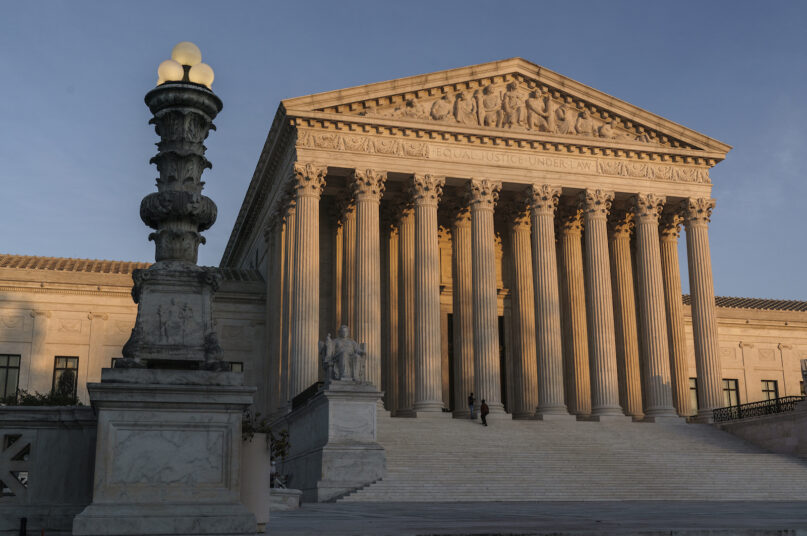(RNS) — The Supreme Court agreed to 10 emergency reviews by religious groups challenging COVID-19 restrictions last year and favorably granted all 10, an analysis has found.
The analysis by Reuters reported on Wednesday (July 28) found the court’s “shadow docket” — in which emergency applications are decided hurriedly without oral arguments or lengthly written decisions — provided religious applicants a win in every case.
In all 10 emergency rulings regarding COVID-19 restrictions, religious groups sought relief from state or local public health measures and were granted them.
The analysis also found former President Trump prevailed in 10 emergency reviews. In eight of those cases the administration sought to execute 13 death row inmates and the court agreed, often overturning lower court rulings that had put federal executions on hold. Under Trump, capital punishment on the federal level was resumed for the first time since 2003.
Shadow dockets do not reveal how the justices voted. The Supreme Court is made up of six conservative and three liberal justices.
RELATED: Religion at the Supreme Court: 3 essential reads
In all, the court took up 150 emergency reviews; 42 involved disputes over the legality of public health measures related to COVID-19. Those included twin emergency requests by the Roman Catholic Diocese of Brooklyn and two Orthodox Jewish congregations challenging crowd restrictions imposed by New York state. Both were granted on the eve of Thanksgiving last year.
To get on the shadow docket, any litigant can apply to a single justice, who decides whether to forward the case to the full court. Five of the nine justices must agree to grant a request. Last year, 73 emergency requests were referred to the full court.
Private petitioners that were not religious entities, the Reuters report indicated — including immigrants fighting deportation and 33 people who filed without the assistance of lawyers — were turned down.





